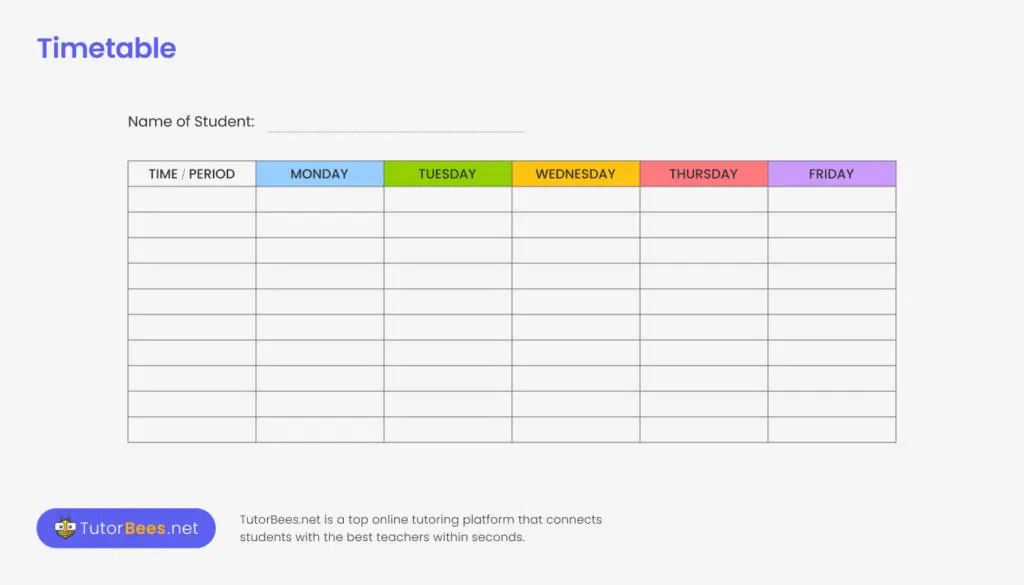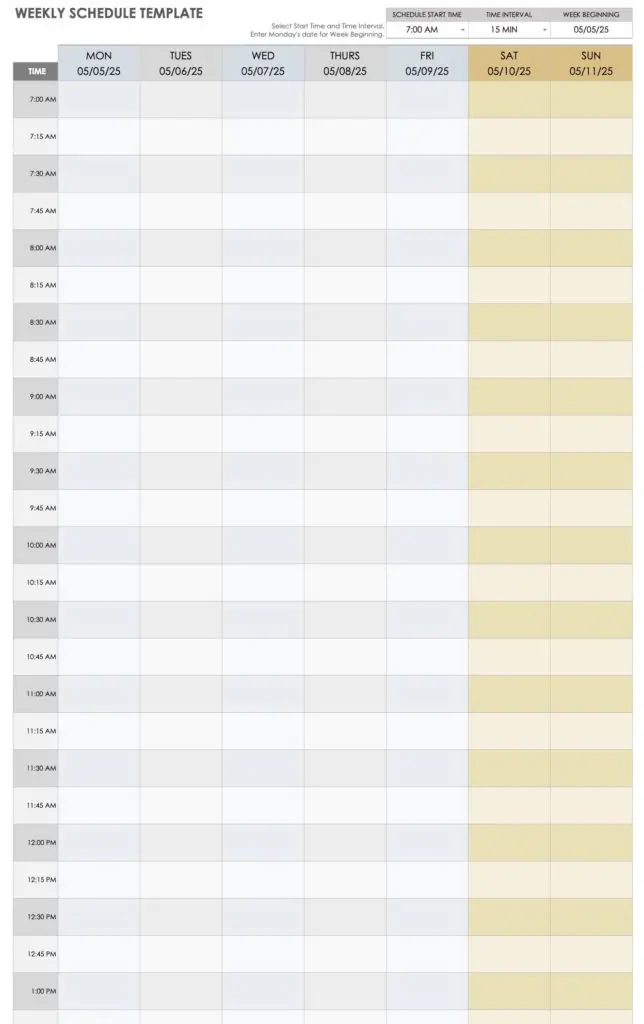You are constantly caught up between academics, social activities, and part-time employment and your grades maybe affected. Making a revision or study timetable is an idea that may organize not only the academics but also everything else. It takes time to curate a decent revision timetable. When creating a revision schedule for your exams, keep the following three ideas in mind:
-
Focus on the subjects that are most expected to appear in the final exam and hold the most weight.
-
Monitor and review progress by the number of topics covered instead of the amount of time spent studying.
-
Adjust your revision timetable to reflect how you can comprehend and absorb the material as time passes.
Your strengths and limitations, academic aims, and a summary of how you will accomplish should all be included in your timetable.
You’ll better understand the task ahead once you begin to write down on a sheet or the computer when creating a revision plan. The optimum revision timetable will be planned far enough ahead of time that you can maintain a healthy study/life relationship and avoid burning out.
Suggested Read: How to be Good at Maths & Improve Math Skills
How to Make a Revision Timetable
Following are some tips for an easy-to-go revision timetable.
1. Putting Together A Study Timetable
Make a list of all the courses you’re taking. The one you’re weak at should be at the top, and the one your confident about should be at the bottom. A simple revision schedule is nothing more than a calendar. Instead of festivals and anniversaries, it lists topics and subjects that must be reviewed on certain days. Your study timetable doesn’t have to depart far from this straightforward model.
-
Review the subject curriculum and assessment specifications to determine what should be covered in each subject. Divide the number of topics you are studying by the number of days until your exams.
-
Organize all of the concepts and topics that need to be covered.
2. Decide What Has To Be Revised First
Consider what courses you need to devote more attention to or specific concepts within those courses. Break down all elements into topics to assess the magnitude of what has to be covered.
3. Frequent Revisions
Schedule time to review information in your study schedule.
Cover a topic more than once before moving on. The information you studied first will be a fading memory when it comes to tests. Mark those topics that take more time in red, those you are unsure about in orange, and those that you excel in green.
You can even utilise this strategy inside a subject by highlighting in red the topics in which you are weak and require extra time. You should now be able to determine at a glimpse which issues and topics take more time on your schedule.
4. Previous Papers
Take a variety of techniques, as some study methods will work better for particular topics than others. This could be determined by how powerful the material is how it will be evaluated, or just how you remember the most information.
Using old papers is always a good idea. Many examiners have reproduce question paper by using copies of former papers, which you can use to test your knowledge. It also makes you familiar with the format of exam questions.
5. Setting Short Term Durations
The duration of your study sessions can also be adjusted to suit your needs. For example, you may discover that two consecutive 30-minute arithmetic sessions with a break in between are the most productive. You can, however, devote more time to your chemistry exam preparation.
Also Read: How to Improve Spoken English?
How Do I Construct A Revision Timetable On Excel?
Numerous tools can assist you in creating a revision schedule. Microsoft Excel has mock study schedule templates to help you.
To build a study schedule, you can use google sheets, excel, notion, or other programmes. Still, you could even colour code some topics or take a quick self-assessment by diving into an old paper at the beginning of your revision session and marking down the score and areas that blew your mind. This will provide you with a solid foundation to work from and keep you motivated.
Your revision game would be strong!

Figure: Mock Study Timetable on Excel
How Do I Make a Mock Study Plan on Google Calendar?
A large selection of flexible weekly schedules in Google calendar format is available as study timetables for children, students, and instructors, class and lesson plans, and seminars and event planners. These blank templates are entirely customizable, adjustable, and readable, and they’re simple to use: download, put in your information, edit, and print. You can easily update and edit the saved schedule if your priorities change before printing it again.

Are Mocks Study Timetable Important?
Using mocks to create a study plan helps you be creative and provides you with fantastic suggestions. It allows you to customise your subject schedule and how you spend your time outside of class. It also ensures that you have adequate time for completing homework, preparing for examinations, and reviewing and recalling the knowledge you are studying. Now you can reap all the benefits of the timetable and ace your exams.
More Suggested Read:



